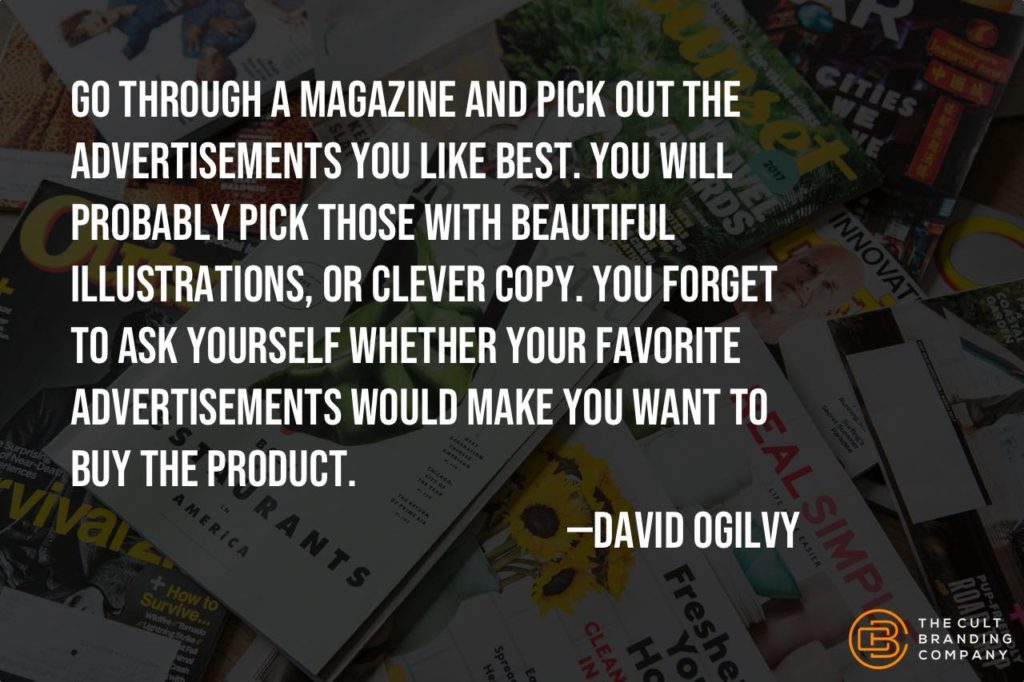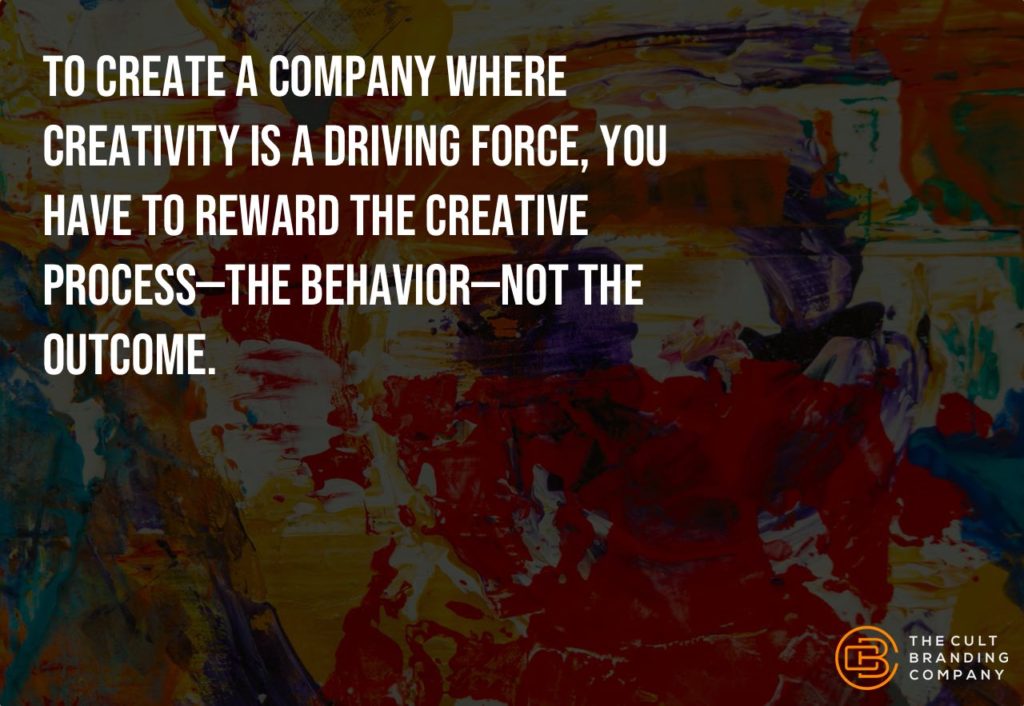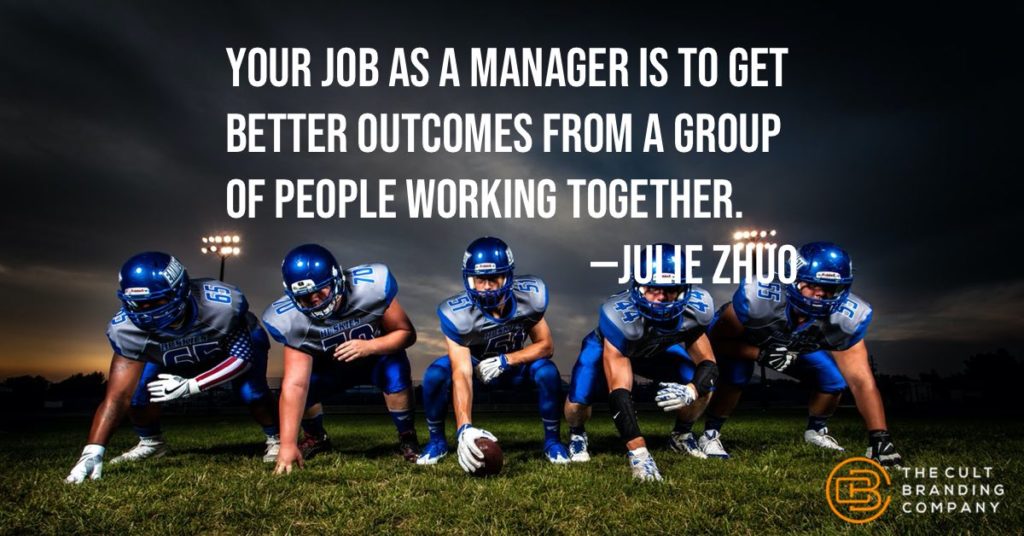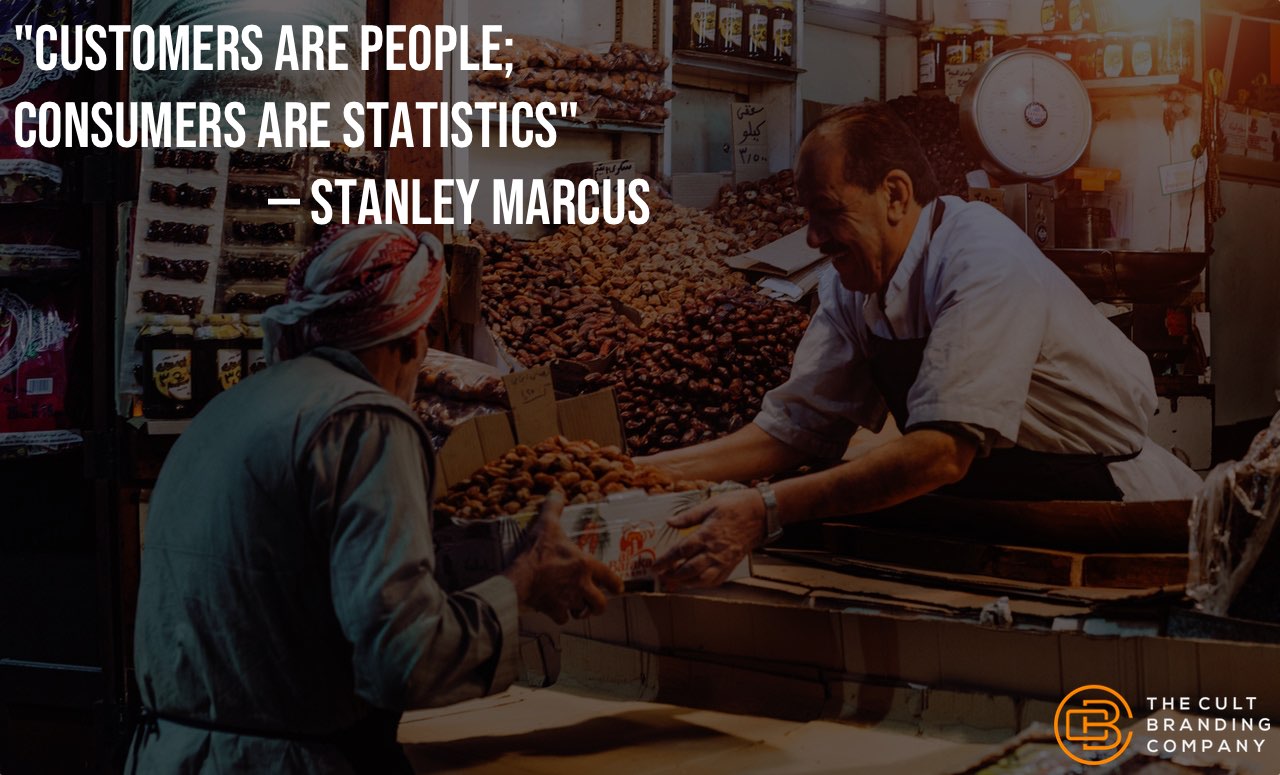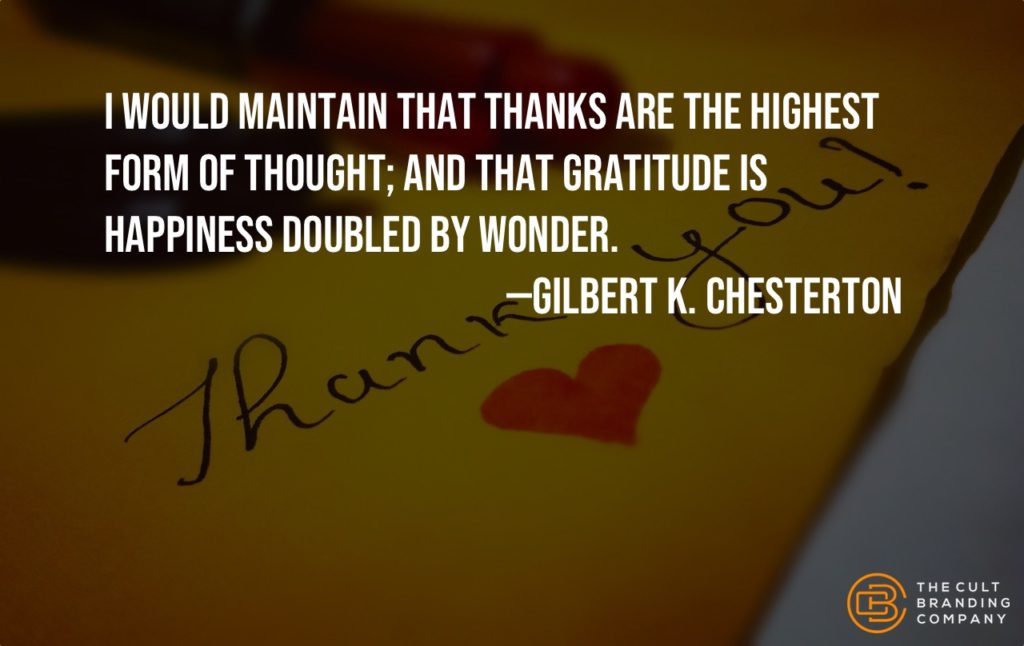
I would maintain that thanks are the highest form of thought; and that gratitude is happiness doubled by wonder.Gilbert K. Chesterton, A Short History of England
As we get ready to celebrate Thanksgiving next week in the US, reflecting on what we’re thankful and grateful for over the last year is the norm.
But, it’s important to regularly reflect on gratitude and thankfulness as individuals and as organizations. Too often we take employees and customers for granted. Yet, it is those employees and customers that we owe our success to.

